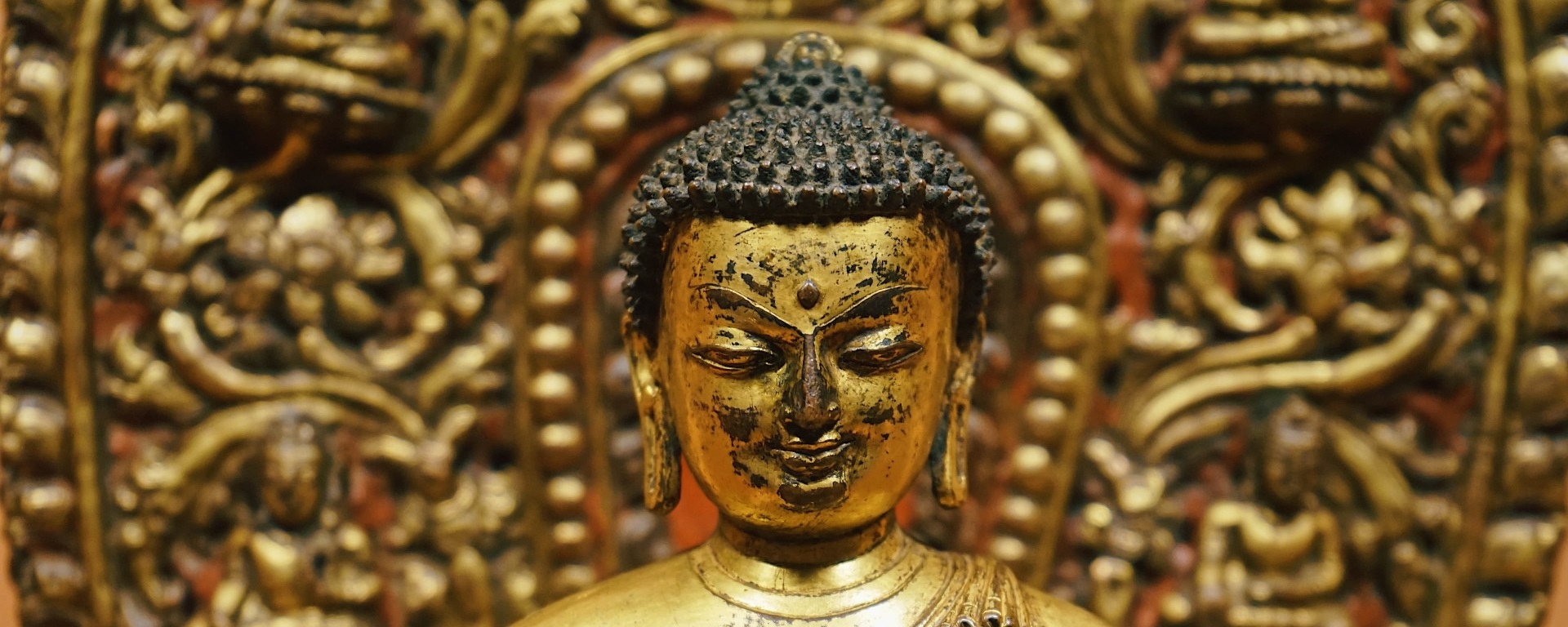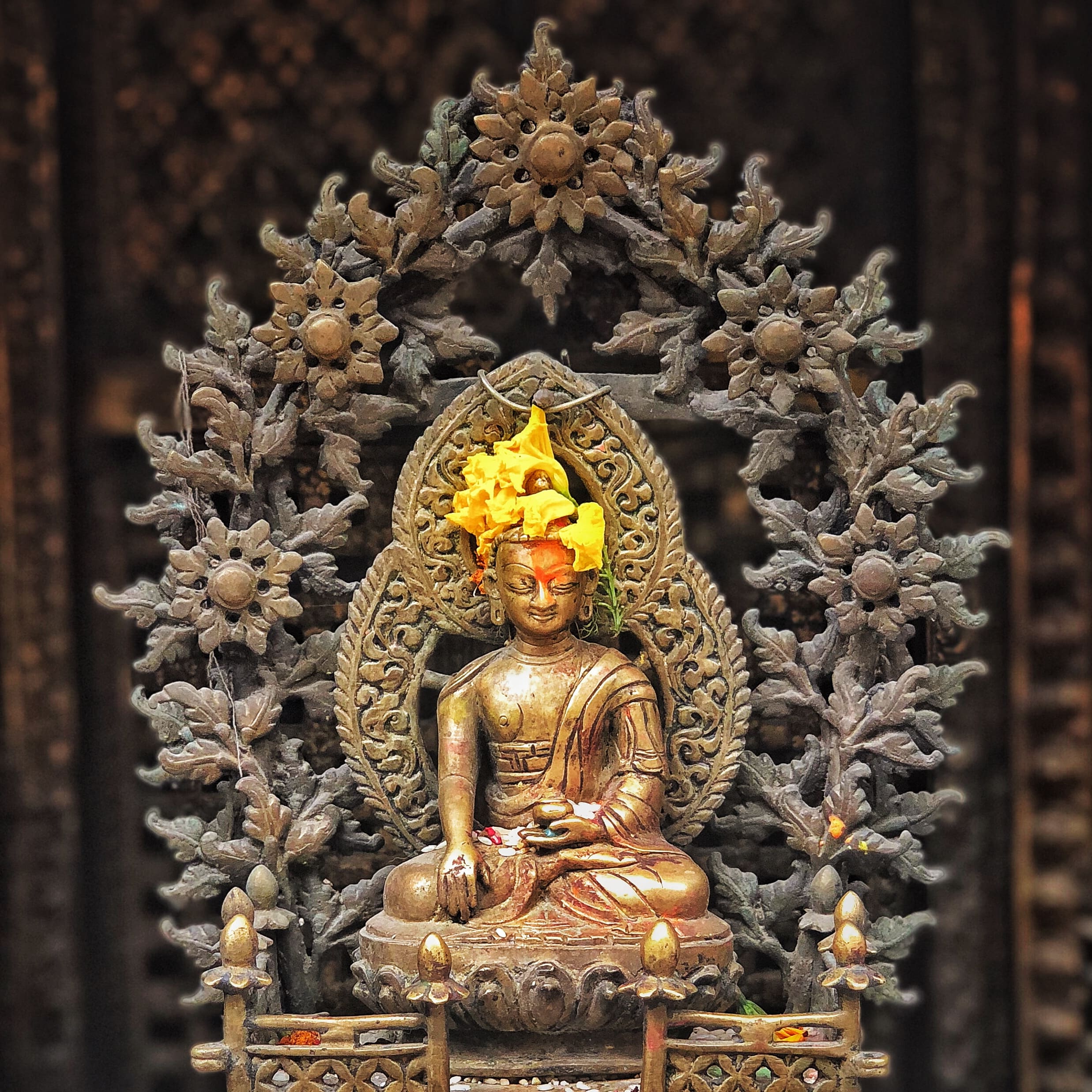

“The founding of Licchavi House in Kathmandu abounds with historical, spiritual, and even family symbolism.
First, we intend Licchavi House to represent the remarkable gift that Nepal itself can offer the world. While Nepalese have no choice but to adapt to this fast-paced 21st century, the country and its people still magically keep their ancient spiritual and cultural inheritance alive and vibrant.
Beyond its mountains and trekking that attract so many, Nepal’s temple bells still ring and the fragrance of incense wafts through the air as devotees, young and old, circumambulate the ancient stupas, just as they have for centuries.
As Buddhism is deeply rooted in its history and culture, Nepal is the place renowned spiritual masters of all traditions have chosen as their seats, and a thousand years ago was the key junction through which some of the greatest Himalayan saints and scholars passed. To this day, this land remains the meeting point for some of Buddhism’s most important influences.
And of course, based on today’s borders, Nepal can proudly claim to be the birthplace of Prince Siddhartha and to be the nation that gave the Buddha Shakyamuni to the world.
Licchavi House will work to ensure that, while Nepalese necessarily adjust to modern needs, they also continue to cherish, uphold and celebrate their country’s extraordinary heritage and contribution to the world.
In fact, we’ve chosen this name for a reason – literally to create a family bond with our history. From about 400-750CE, the Licchavi clan ruled the Kathmandu Valley and helped spread Buddhism to Tibet and central Asia through trade, pilgrimage and missionaries.
The dominant clan in south Nepal and north Bihar at the time of the Buddha, the Licchavis were among the most devout disciples and generous patrons of the Buddha, receiving some of his most important teachings. Indeed, the Buddha’s own mother, Mayadevi, was a Licchavi.
Licchavi House itself is a project of the Bhrikuti Devi Trust, named for the Nepali princess of the Licchavi Kingdom in the Kathmandu Valley who married King Songtsen Gampo of Tibet around 621 CE. A devout Buddhist who was considered an emanation of Tara and the most important spiritual influence on the Tibetan king, Bhrikuti Devi worked tirelessly to build temples and establish Buddhism in Tibet.
By nurturing the study, discussion and practice of Nepal’s ancient wisdom traditions alongside art, film, writing, photography and other creative workshops, Licchavi House aims to celebrate this remarkable ancient heritage in ways entirely relevant to our modern world.
To that end, we want Licchavi House to be a place where young people in particular – girls and boys of all ages – and also ordinary folk from teachers to entrepreneurs to workers to students, feel comfortable just being who they are and enjoying each other’s company as they collectively learn about, practice, and take pride in their splendid inheritance.
Licchavi House, Kathmandu is a lifestyle cultural center with a vision and a truly open and accommodating atmosphere. It will also offer short courses on meditation, community issues and Nepal’s rich spiritual traditions, and will facilitate retreats and more intensive study for those so inclined.”
Dzongsar Jamyang Khyentse Rinpoche, Founder

Filmmaker? Photographer? Football fan? In a world where labels matter, finding just one that captures the essence of Dzongsar Jamyang Khyentse Rinpoche might, on the face of it, seem an impossible task. But actually, it couldn’t be simpler. First and foremost, Khyentse Rinpoche is and always will be a Buddhist teacher, and all his other activities are merely creative responses to this central aspiration.
Khyentse Rinpoche was born into what he describes as a ‘hard-core Buddhist family’ in Bhutan. At the age of seven, he was recognized by His Holiness Kyabgon Gongma Trichen Rinpoche, the 41st Sakya Trizin, as the main incarnation of the incomparable Dzongsar Jamyang Khyentse Chökyi Lodrö, the spiritual heir of one of the most influential and admired 19th century incarnations of Jamyang Khyentse Wangpo.
In the early nineteen-eighties, Rinpoche made his first trip abroad to teach in Australia, and to all intents and purposes has not stopped traveling since, founding several international organizations along the way to support and broaden the scope of his activities. Siddhartha’s Intent organizes, distributes and archives his teachings; Khyentse Foundation provides the financial support necessary to fulfill his aspirations; 84000 oversees the translation of the Word of the Buddha into modern languages; and Lotus Outreach directs a wide range of projects to help refugees, and particularly abused and underprivileged women and children. One of Rinpoche’s more recent initiatives is the Lhomon Society, founded in 2010 to promote sustainable development in Bhutan through education.
Rinpoche is the author of several books about Buddhism that have been translated into many languages; for example: “Poison is Medicine” (2021), “Living is Dying”(2018), “The Guru Drinks Bourbon?” (2016), “Not for Happiness” (2012) and “What Makes You Not a Buddhist” (2006). He is also well-known outside the Buddhist world for the feature films he both wrote and directed, “Looking for a Lady with Fangs and a Moustache” (2019), “Hema Hema” (2016), “Vara: A Blessing” (2013), “Travelers and Magicians” (2004) and “The Cup” (1999).